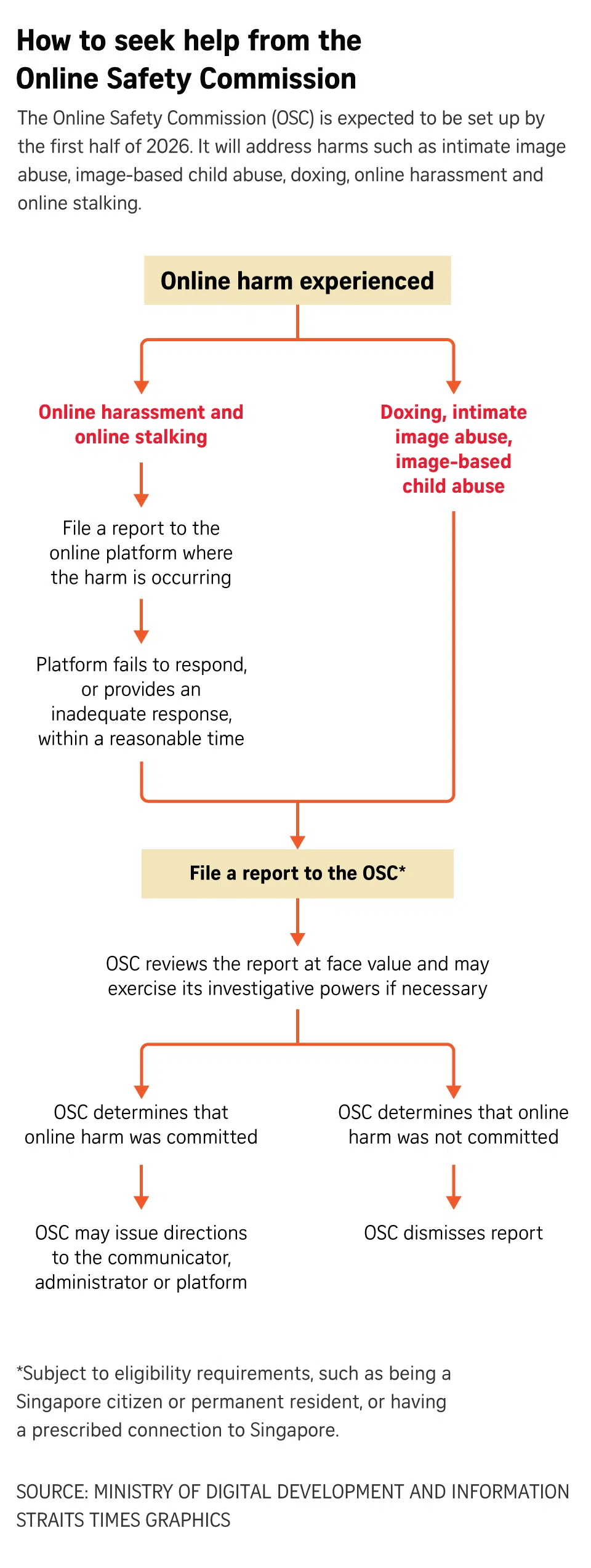Follow our live coverage here
SINGAPORE – Victims of non-consensual distribution of intimate photos, child abuse material and doxing will be able to seek timely redress from a
one-stop government agency
empowered by a new Bill tabled in Parliament on Oct 15.
The Online Safety (Relief and Accountability) Bill details the setting up of the Online Safety Commission (OSC), as well as the obligations of content communicators, administrators and platforms in tackling reported harms, including online harassment and stalking.
Individuals may be fined up to $20,000 and jailed for up to 12 months, while entities may be fined up to $500,000, for flouting these obligations and the directions of the OSC.
The agency is expected to begin operations by June 2026, and a commissioner to head the agency will be appointed by the Minister for Digital Development and Information.
The OSC will address 13 types of online harm, with the agency initially focusing on online harassment, doxing, online stalking, intimate image abuse and image-based child abuse.







